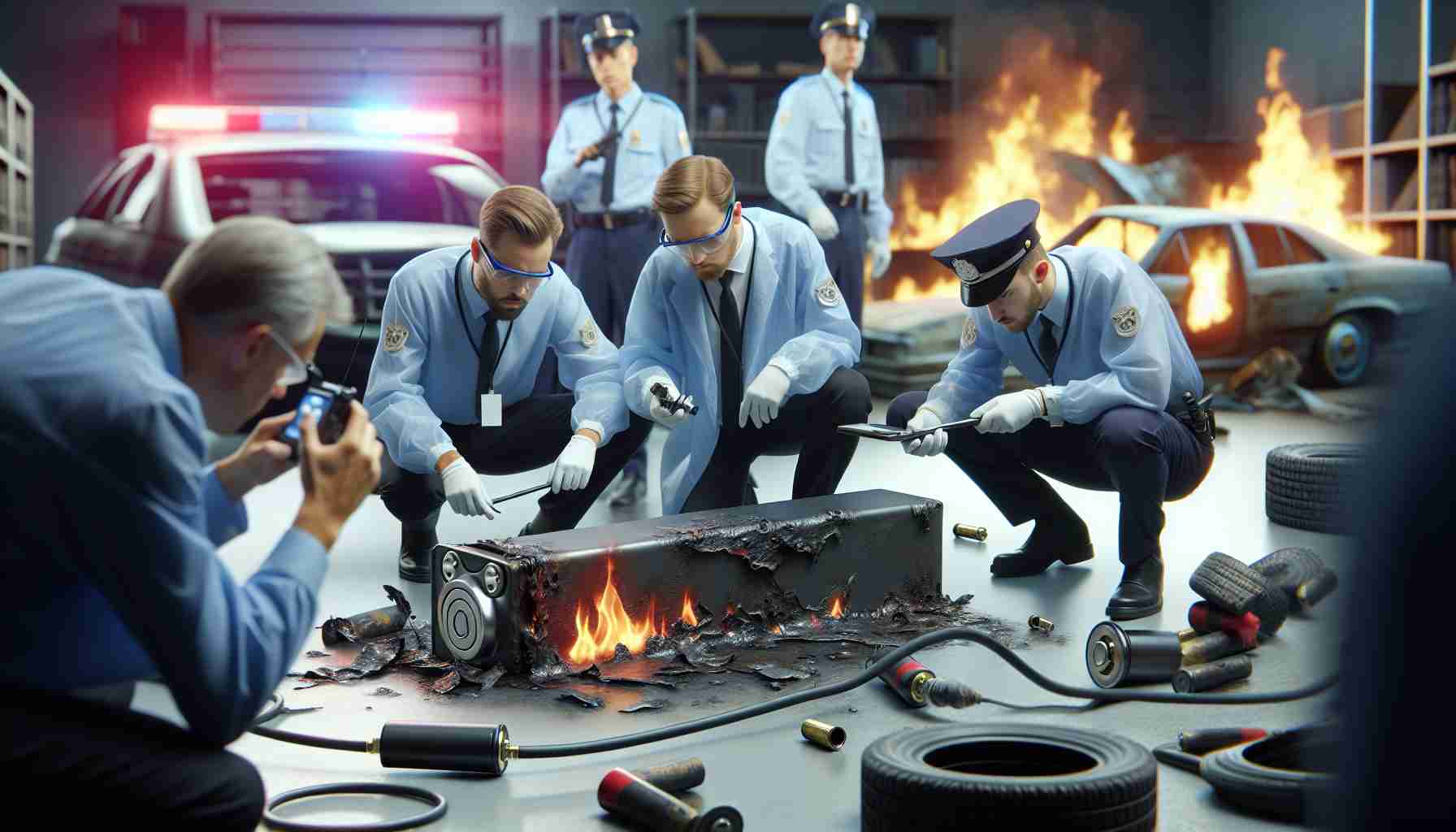In a recent investigation, it has been determined that a fire which resulted in the destruction of a building housing police vehicles, equipment, and gear was caused by a battery from one of the newly acquired e-bikes for the Coeur d’Alene Police Department. Fire investigators from multiple agencies completed the investigation and concluded that the fire was an unfortunate accident caused by a catastrophic failure of the lithium-ion battery pack.
Although the exact cause of the battery failure remains unclear, it is evident that the battery was being charged after being used by the police the evening before the incident. The investigation also revealed that the charging station was properly plugged into an outlet, and there was no evidence of prior damage or misuse of the e-bike or the charging unit.
The devastating fire resulted in the loss of approximately 10 police vehicles, including specialized units such as the SWAT BearCat armored vehicle and an incident command trailer. Additionally, the blaze destroyed nearly 100 laptops, new e-bikes, and all equipment associated with the police department’s canine program. The estimated losses are in the millions.
During a City Council meeting, questions were raised about why the building did not have a sprinkler system. Police Chief Lee White explained that when the building was acquired in 2016, there was no requirement for a sprinkler system as it was primarily used for storage. Retroactively, it would have cost $15,000 to install a sprinkler system, and the city did not have the funds at that time. Chief White acknowledged that a new building would include a sprinkler system.
The investigation was carried out by the Idaho State Fire Marshal’s Office as the lead agency, with assistance from the Bureau of Alcohol, Tobacco, Firearms and Explosives (ATF). Due to the complexities and significant loss caused by the fire, a forensic analysis will be conducted by the city’s insurance company. However, the results are not expected for several months.
In response to the emergency situation, the City Council unanimously approved an emergency declaration request by Police Chief White to expedite the process of replacing the items lost in the fire. The declaration aims to streamline the purchasing process without requesting additional funding.
Moving forward, the Coeur d’Alene Police Department will work with their insurance carrier, ICRIMP, to determine the extent of the losses and the necessary steps for recovery. Despite the immense challenges posed by this incident, the department remains committed to providing uninterrupted police coverage to the community.
The incident involving the fire at the Coeur d’Alene Police Department highlights the potential risks associated with lithium-ion batteries, especially in the context of electric vehicles such as e-bikes. The popularity of e-bikes has surged in recent years, driven by growing concerns about environmental sustainability and the desire for alternative modes of transportation. However, incidents like this serve as a reminder that there are still challenges to overcome in ensuring the safety of these vehicles.
The e-bike industry has experienced significant growth in recent years. According to a report by Market Research Future, the global e-bike market is expected to grow at a compound annual growth rate (CAGR) of 6.39% from 2019 to 2025. Factors such as increasing urbanization, government initiatives to promote clean transportation, and advancements in battery technology are driving the market growth. E-bikes are seen as a cost-effective and eco-friendly solution to address issues related to traffic congestion and air pollution.
However, incidents like the fire at the Coeur d’Alene Police Department highlight the importance of properly handling and maintaining lithium-ion batteries. The investigation revealed that the fire was caused by a catastrophic failure of the battery pack, but the exact cause of the failure remains unclear. This incident raises questions about the quality control and safety standards within the e-bike industry.
Ensuring the safety of lithium-ion batteries is crucial given their widespread use not only in e-bikes but also in other electronic devices such as smartphones, laptops, and electric vehicles. Manufacturers need to prioritize rigorous testing, quality control measures, and proper guidelines for battery storage and charging to prevent similar incidents from occurring.
In terms of market forecasts, it is expected that the demand for e-bikes will continue to rise. According to a report by Grand View Research, the global e-bike market was valued at $23.89 billion in 2018 and is projected to reach $46.04 billion by 2025. This significant growth can be attributed to factors such as increasing health consciousness, the need for efficient and sustainable transportation solutions, and advancements in battery technology.
However, the e-bike industry still faces various challenges and issues. One of the key challenges is the lack of standardized regulations and safety standards for e-bikes. Different countries and regions have different rules and regulations regarding e-bikes, which can create confusion and inconsistencies in the market. Efforts are being made to establish uniform regulations to ensure the safety and reliability of e-bikes.
Additionally, concerns about the environmental impact of battery production and disposal need to be addressed. The extraction of raw materials for lithium-ion batteries can have negative environmental consequences, and the disposal of these batteries at the end of their lifespan can also pose challenges. Developing sustainable and environmentally friendly battery technologies is essential to mitigate these concerns and ensure the long-term viability of the e-bike industry.
Ultimately, incidents like the fire at the Coeur d’Alene Police Department serve as a reminder of the importance of safety standards, quality control, and proper handling when it comes to lithium-ion batteries. As the e-bike industry continues to grow, it is crucial for manufacturers, regulators, and consumers to prioritize safety and sustainability to ensure a positive and secure future for this mode of transportation.
Related links:
– Electric Bikes Market – Global Overview, Share, Trend, Industry Size, Growth, Forecast Research Report
– Electric Bike Market Size, Share & Trends | Industry Report, 2019-2025







